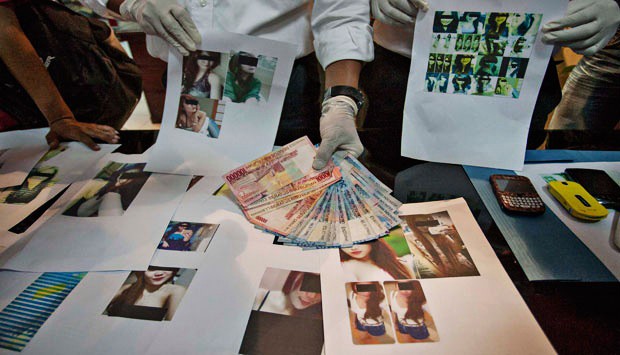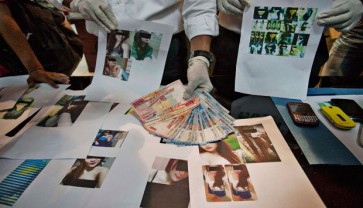Popular Reads
Top Results
Can't find what you're looking for?
View all search resultsPopular Reads
Top Results
Can't find what you're looking for?
View all search resultsWhat should we do about the sex trade?
The criminalization of sex work is believed to have a huge role in the worldwide epidemic of HIV/AIDS.
Change text size
Gift Premium Articles
to Anyone
T
he number of HIV/AIDS cases in Indonesia continues to rise ahead of World AIDS Day commemorated every Dec. 1. In last year’s Joint United Nations Program on HIV/AIDS (UNAIDS) meeting, Indonesia joined other countries in a declaration to end the global epidemic by 2030. This includes zero infection, zero deaths and zero discrimination.
In 2016, the number of people living with the human immunodeficiency virus in Indonesia reached more than 690,000 people, with the highest risk coming from unprotected sexual intercourse with multiple partners. Home to at least 40,000 sex workers, Indonesia’s sex trade greatly contributes to the country’s HIV/AIDS epidemic.
Poverty remains a key driver that forces individuals and even families into the sex trade. When I first conducted my study on sex workers at the Boker red-light district in Ciracas, East Jakarta, I was shocked to learn that many had turned to the trade after given permission by their own husbands.
“We feel like we have no choice. We were not able to meet our financial needs,” one of the women said.


















